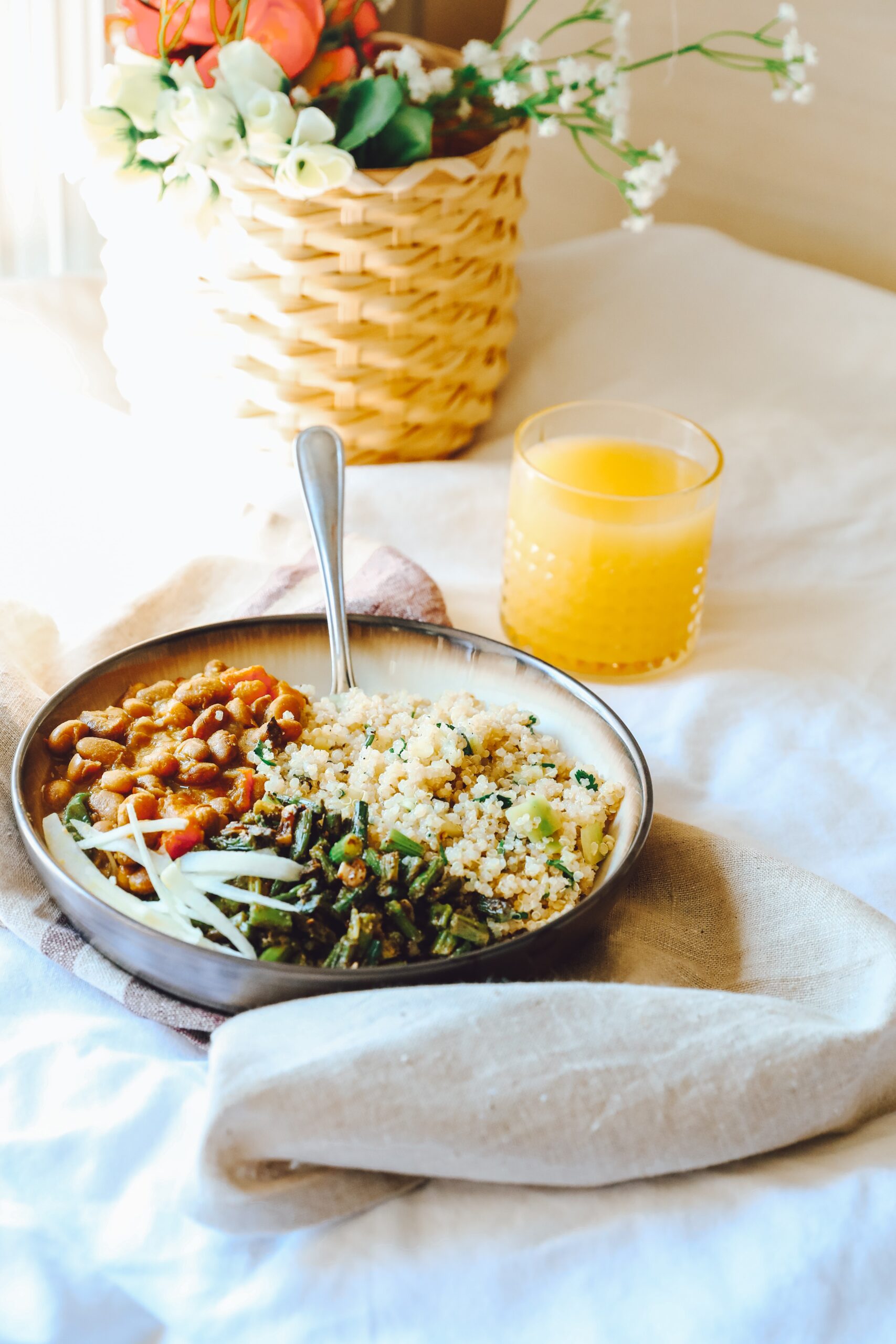
Plant Based Protein
Protein is a critical nutrient for energy levels. It’s also involved in weight maintenance, healthy muscle mass, happy mood, and satiety. So if you are feeling less than vibrant, read on!
Often low protein consumption goes hand in hand with an aversion to animal based foods. Avoiding these foods does not mean you need to miss out on the cell building, energy providing, satiating joy that is protein! To be honest, you just need to work a little harder at getting it.
Essential vs non-essential amino acids
Proteins are built from amino acids, and there are around 20 amino acids that the human body uses. Amino acids are classified as either essential or non-essential. Your body can produce non-essential amino acids but it cannot produce essential amino acids, so these need to be obtained through your diet.
Animal protein sources, such as meat, fish, poultry, eggs and dairy, are similar to the protein found in your body. These are considered to be complete sources of protein because they contain all of the essential amino acids that your body needs to function effectively. However plant protein sources, such as legumes, whole grains, nuts & seeds are considered to be incomplete, meaning they lack one or more of the essential amino acids that your body needs. Each group of plant protein, either legumes, whole grains, or nuts & seeds, contain different essential amino acids. This is why it’s important to have a wide variety of plant protein sources in your diet, to ensure that all essential amino acids are attained.
How much protein do I need?
A good baseline is 1gm of protein for every kg of body weight. For example, a 60kg person would aim for 60g of protein per day, or 20g per meal. Actual requirements do vary for everyone depending on their muscle mass & exercise levels, so please keep that in mind. To see what this may look like for you, add up some of the plant based proteins below:
Lentils (cooked) 4g per ¼ cup
Beans (cooked) 3.5g per ¼ cup
Hemp seeds 3g per tbs
Chia seeds 1.5g per tbs
Edamame (unshelled) 5g per ¼ cup
Peas 8g per cup
Quinoa (cooked) 8.5g per cup
Oats (dry) 5g per ¼ cup
Peanut butter 4g per tbs
Almonds 6g per 30g serve
Tempeh 20g per 100g serve
Tahini 2.5g per 1tbs
Hummus 1g per 1 tbs
Meal Examples
Breakfast: ¼ cup of oats with 1 tbs chia, 1tbs PB, 2 tbs hemp seeds, nut milk & berries – 16.5g protein
Lunch: Buddha bowl with ½ cup quinoa, ½ cup black beans, ½ cup peas, ¼ cup edamame & salad greens – 20.25g protein
Snack: 30g of almonds – 6g protein
Dinner: 100g tempeh with stir-fry vegetables – 20g protein
Total protein for the day = 62.75g
⠀⠀
As you can see above, having a solely plant based diet requires dedication! Some people may be comfortable including eggs in their diet which pack an whopping 6g of protein per egg. Alternatively, high quality protein powders are another great option to reach your daily target, with many containing around 20g of protein per serve.
This blog by Oh She Glows has some more excellent high protein meal ideas, so you can get creative in the kitchen.
If you are experiencing low energy or have questions around your diet and want individualised support, book in for a FREE base chat with Brooke here.
Author
Brooke Schiller, BHSc Nat & Nut, BCom
Brooke is a qualified naturopath with a focus on digestive health, hormones and adrenal conditions.
Learn more about Brooke here
Book a session with Brooke here
References
https://www.ncbi.nlm.nih.gov/pmc/articles/PMC3905294/





